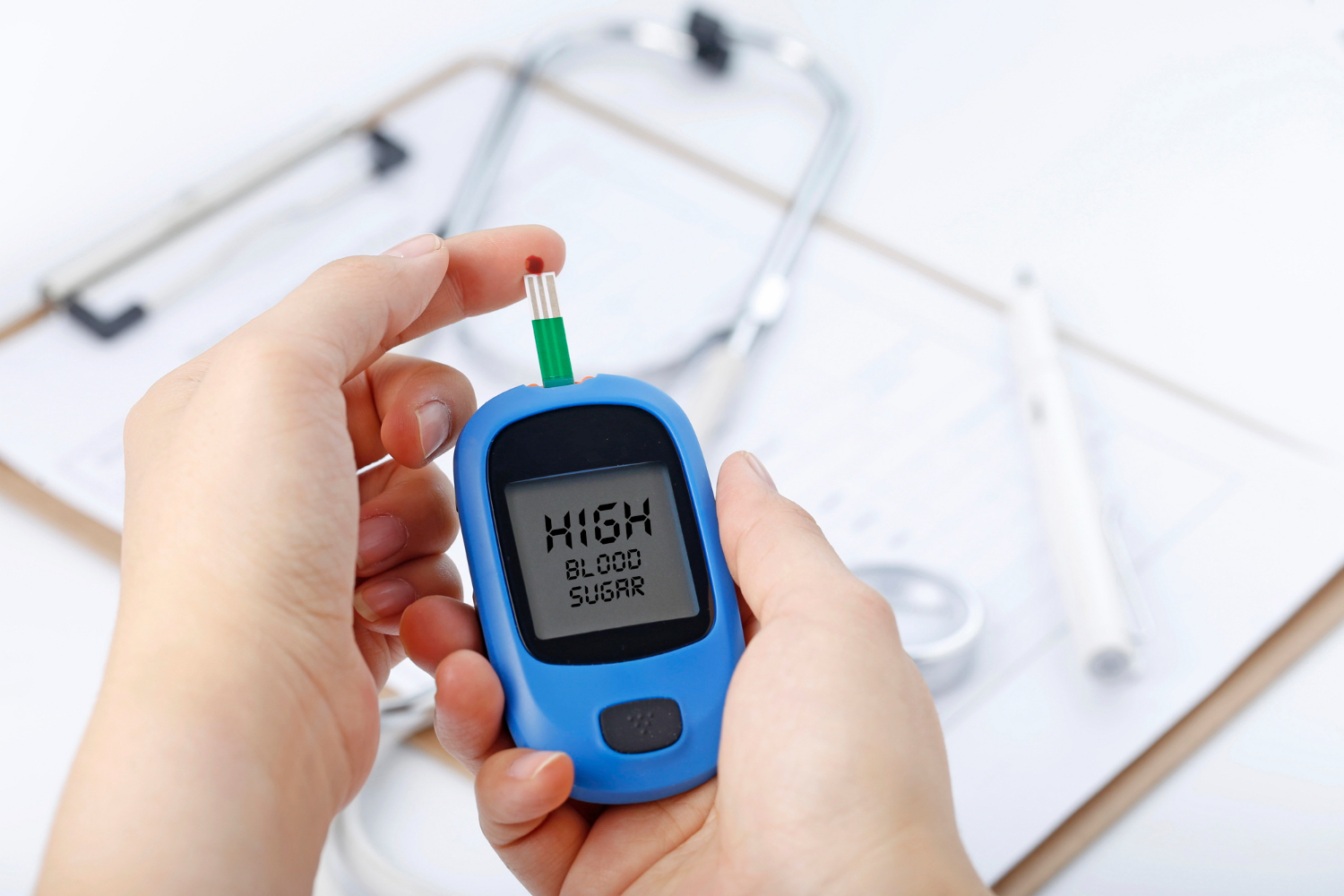Diabetes is a long-standing condition and a disease in which the body does not make or use insulin the way it should. Insulin is a hormone needed to change food into energy needed for daily life. It is the leading cause of significant complications like heart attacks, paralysis, loss of eyesight, kidney failure, foot infections, and gangrene. But these complications can be prevented by appropriately managing diabetes and related conditions. This can be done by following diet, lifestyle, medications, and monitoring.
7 Steps to Diabetes Management
- Control your diet
- Be active
- Take care of your feet
- Lose weight
- Mental and emotional well-being
- Compliant with medications
- Regular monitoring
Eating has a direct impact on your blood sugar, which is why making dietary changes is a must.
It is advised to eat brown carbohydrates such as brown rice, wheat bread, and whole-grain pasta. Look for food items that have higher amounts of fibre, which will help keep your blood sugar balanced. Consume as little sugar as possible.
The amount of activity or exercise that anyone should do plays an important role. The activity is supposed to get the heart rate up, you should be able to walk a mile in 20 minutes. Cycling and swimming are other options, particularly for people with hip or knee problems. You also need to avoid sitting for prolonged periods, it is really bad just as bad as smoking in some cases. Sleep deprivation is a frequently overlooked but significant risk factor for type 2 diabetes, obesity, and increased risk of heart disease. You should obtain at least 7 to 9 hours of uninterrupted sleep at night.
It is essential that people with diabetes check their feet every day, and if they see any wounds, they must seek medical attention straight away. Physical exercises help you control blood sugars, blood pressure and cholesterol, contribute to weight loss, improve well-being, and make you look better.
Also Read: Doctor-On-Call Service: Everything You Need to Know About
Since people with type 2 diabetes even make insulin, but their bodies are not utilizing it effectively, they may be capable of coming off medications with early lifestyle modifications and weight loss. You need to improve your level of daily activity and be mindful of how many calories you’re consuming, to safely and effectively lose weight.
It is important to take care of your mental and emotional well-being, not just your physical. This can be achieved through support groups and individual counseling, if required.
Since people with type 1 diabetes aren’t making insulin at all, it is crucial that they be compliant with their insulin. Otherwise, they could end up in an emergency condition because they are at a greater chance of serious problems and could even be hospitalized if they don’t take their medications as prescribed.
Blood sugar monitoring is essential to diabetes treatment. It allows you to know your blood glucose levels and understand the effect of diet, exercise, and medications on glucose levels. There are various methods of monitoring glucose levels: lab tests (fasting and after-meal blood glucose), self-monitoring of blood glucose (SMBG) with a glucometer, continuous glucose monitoring systems (CGMS), and HbA1c. Your doctor will allow you to know how often to check your blood glucose levels. The frequency of testing usually relies on the type of diabetes you have and your treatment plan. The HbA1c test shows the estimate of average blood glucose levels over the last 3-4 months. So it is important to get an HbA1c test done at least once in 6 months, and more frequently if the blood glucose is not under control.
Conclusion
Diabetes is a leading cause of loss of eyesight, kidney failure, nerve problems, and heart disease. These conditions do not cause any symptoms till the final stages of the disease. But, you can slow down these conditions by determining these problems early. So it is better to get tested for these complications at least once a year, and more often if the problems have already started. The more you learn about factors that affect your blood sugar level, the more you can anticipate fluctuations and plan accordingly.

